Bass Players To Know: Donald “Duck” Dunn
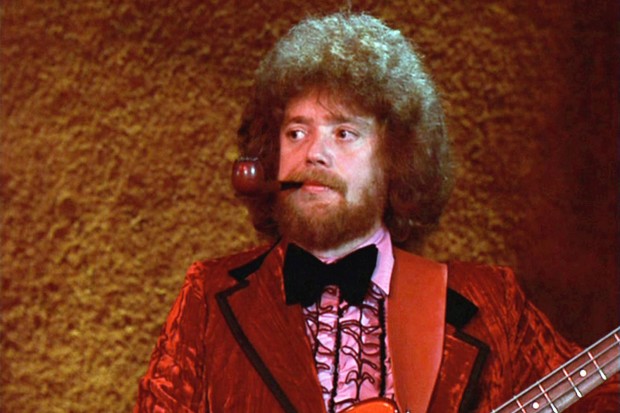
For the official launch of our Bass Players to Know series, we’re starting with the man, the legend, the ’fro: Donald “Duck” Dunn.
Lets cover some of the need-to-know facts, an examination of his style, and a few key listening examples…
So who is Duck Dunn, anyway?
Dunn was born and raised in Memphis, Tennessee and is best known for his session work at Stax studios. Working alongside Steve Cropper, Al Jackson and Booker T. Jones, he was the bass player in the band Booker T and the MGs and had hits with instrumentals such as “Hang em High” and “Time is Tight.”
The group functioned as the house band at Stax, backing up many blues and soul artists including Otis Redding, Wilson Pickett, Sam and Dave, Eddie Floyd, Albert King, Isaac Hayes and The Staple Singers. Throughout his career, he also laid down the groove for Freddie King, Jerry Lee Lewis, John Prine, Rod Stewart, Eric Clapton and many others.
Dunn is a member of the Rock and Roll Hall of Fame and has received a Grammy “Lifetime Achievement” Award. As if that isn’t enough, he’s the uber-cool bass player in the Blues Brothers Band and can be seen in both the original movie and the sequel, Blues Brothers 2000. Unfortunately, Dunn passed away in May of 2012 at the age of 70 after a series of performances in Tokyo.
Let’s talk style
An afro, a pipe, and a Precision… the definition of cool. Duck epitomizes the laid-back but driving force that is the bass with his simple, elegant, and superbly funky grooves.
When it comes to blues and soul music, Dunn’s style is quite specific. Many tunes are part-based, where each instrument plays a distinctive line. The different pieces, such as the “chink” of a guitar, the horn stabs, and the bass groove all come together like a musical puzzle. While his Motown contemporary (James Jamerson), has an improvisatory style and highly varied harmonic approach, Duck frequently settled into a repetitive hook that defines the song. On most of the hit soul records, there’s little variation from the original groove, save for a few fills and similar – yet comparable – note choices. Duck’s soul grooves tend to be pentatonic in nature, while his blues patterns often outline the arpeggio on a slow tune or shuffle or stick to the root, octave, 5th, and flat 7th on lick-based tunes. His overall style, though rather simplistic, is undeniably appropriate for the song, the singer, and the soloist.
As an ensemble player, Duck epitomized what it is to groove with a band and made records that relied upon feel. Most of the tunes recorded at Stax featured the rhythm section tracking together in the same room, giving the players the ability to communicate and lock in with one another. The MG’s are masters of dynamics — Duck in particular, drives the band with his affirmative tone, his willingness to hang back or push ahead with the other players, and his ability to follow the vocalist’s interpretation of the song. This is a particularly “live” approach to playing, meaning that each performance is unique and dependent on the vibe of the session or show.
Where can I hear his playing?
Otis Redding: “(Sittin’ On) The Dock of the Bay”
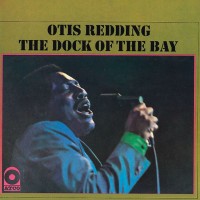 As one of the most iconic bass intros, Dunn’s distinctive tone helps to set the mood of the record. He takes a root-fifth approach throughout most of the song, pedals through the bridge to accompany the heightened energy of the vocals, and returns to the original theme to create the perfect backdrop for the memorable “whistle” outro.
As one of the most iconic bass intros, Dunn’s distinctive tone helps to set the mood of the record. He takes a root-fifth approach throughout most of the song, pedals through the bridge to accompany the heightened energy of the vocals, and returns to the original theme to create the perfect backdrop for the memorable “whistle” outro.
Listen: iTunes | Amazon MP3
Albert King: “Born Under a Bad Sign”
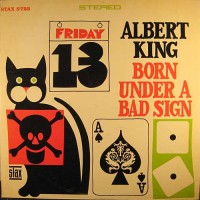 While the entire record Born Under A Bad Sign is a quintessential example of blues bass playing, the title track is well known for its groovy “hook.” Dunn mimics the guitar riff at many points during the song but breaks away with a slightly different groove during the verses. As a part, it is simple, definitive, and perfectly complimentary to the main guitar line.
While the entire record Born Under A Bad Sign is a quintessential example of blues bass playing, the title track is well known for its groovy “hook.” Dunn mimics the guitar riff at many points during the song but breaks away with a slightly different groove during the verses. As a part, it is simple, definitive, and perfectly complimentary to the main guitar line.
Listen: iTunes | Amazon MP3
The Blues Brothers Band: “She Caught the Katy”
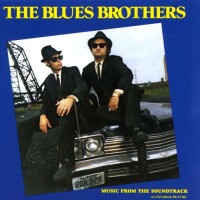 This tune features a more active bass line, especially compared to many of the early soul records. Duck grooves the verses, uses a funky octave climb to the “four” chord, and even integrates a quick diminished riff. At the end of the song, the bass plays a chromatic descending line on the up-beats and is accompanied by some truly funky horns.
This tune features a more active bass line, especially compared to many of the early soul records. Duck grooves the verses, uses a funky octave climb to the “four” chord, and even integrates a quick diminished riff. At the end of the song, the bass plays a chromatic descending line on the up-beats and is accompanied by some truly funky horns.
Listen: iTunes | Amazon MP3
How about you? What are your favorite recordings backed by Duck Dunn? Please share in the comments.
Ryan Madora is a professional bass player, author, and educator living in Nashville, TN. In addition to touring and session work, she teaches private lessons and masterclasses to students of all levels. Visit her website to learn more!

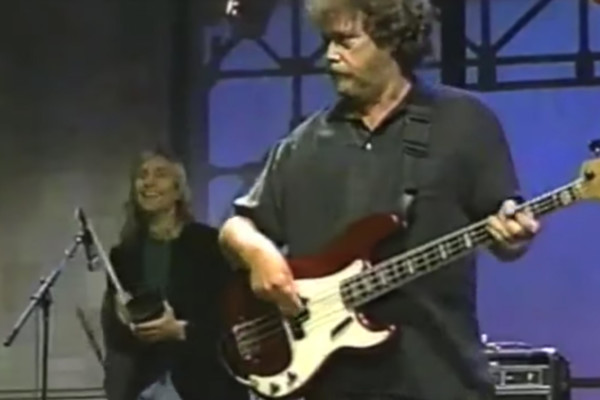

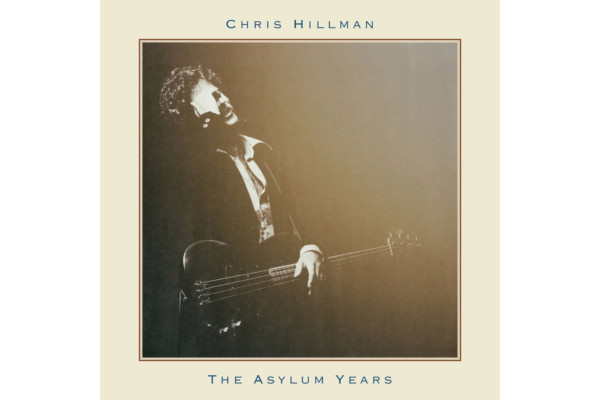
very cool…I hope you have some good ones lined up for this series…like Dee Murray maybe? or John Deacon?
Yes!
Love this column.
she caught the katy is killer!
Anything with Booker T. & The MG’s, but especially the “Melting Pot” album. Man, he’s amazing on that…
Give a listen to Sweet Home Chicago off the Blues Brothers too..
“…the ‘fro …”?!?
C’mon. Everybody should be forgiven for their hair in the late-’70s. The remaining 45+ years of Duck’s playing years was not spent picking out his hair. I mean, you didn’t even cover the origin of his nickname …
OK patrick, give us the skinny! where’d that handle come from? =D
I judge not, lest photos of my ’80s hair surface, and then I be judged.
Thanks for the series and starting it off with one of our heroes.
Nice article- I look forward to the series!
The Blues Brothers: Original Soundtrack Recording is a bass masterclass for begginers, students and pros. There is everything about the blues bass language.
The Blues Brothers’ “Messin’ With the Kid,” Freddie King’s “Goin’ Down.”
His lines on the MG’s “Bootleg” are down right solid.
Great start! Can’t wait to see who’s next and no that’s not a push for Entwhistle although I hope he’s in there!
The Abby Road cover record is badass. Love Duck Dunn.
Didn’t he play that classic solo on the Staple Singer’s “I’ll Take You There”? You can’t play bass on that song without playing that solo. There is no substitute!
Nope, that was David Hood at Muscle Shoals Sound.
MY favorite line by Duck is everything he ever did—–He’s one of my all-time favorites ( And probably—-maybe subconsciously —- he’s the reason I love P-Basses . )
Great way to start the bass groove conversation and players to know.Everything that we know as groove,feel,tone,and note placement all begins with the great rhythm sections we all love; STAX,Muscle Shoals,The Wrecking Crew,The Section,Motown.Well oiled machines where the bass player created a line that was musical, appropriate, and fit the vision of the songwriter .
hope we see carole kaye in these pages too ,a legend if there ever was one
this is great can’t wait for more!!!
One of my heroes…Duck rules!
Shake a Tail Feather, the song played in the Blues Brother movie with Ray Charles in the music store is what I like to warm up with before a gig, really stretches the left hand and gets blood flowing in the right hand. It also turns heads and makes some hips shake too! ;)
I don’t remember where I read it, but I thought Duck swapped his P-Bass neck for a Jazz neck?
Doug Stegmeyer!!!!!
Don’t Think Twice, It’s Alright. Behind Clapton in October 1992 at a Bob Dylan anniversary concert at Madison Square Garden.
Check out “Groove Me” by King Floyd. It’s an excellent, syncopated bass line.
He’s not on that (though The Blues Brothers do a great cover). That was recorded at Malaco in Jackson, MS. Bassist was Vernie Robbins, a guy who died at a young age from cancer. They cut Jean Knight’s “Mr. Big Stuff” on the same session!
What about Carl Radle and Klaus Voormann
Backing Otis Redding live on Try A Little Tenderness at Monterey Pop
Duck Dunn on bass. ‘Nuff said.
One of the lines I enjoy the most is the one he played on the Sam & Dave song: “I don’t need nobody (To Tell Me ‘Bout My Baby)”
Who’s Making Love to Your Old Lady? by Johnny Taylor. Great song, great playing.
Duck was one of the best and an enormous influence on me.
*Staples Singers
“Soul Man” on the Briefcase Full of Blues album is amazing!
I learned how to play bass by listening to him on the first Blues Brothers album. HUGE influence on me
Otis Redding’s original version of “Respect” is proof of Duck Dunn’s inspiring bass playing. So inspiring that George Harrison used it as a template for the bass on ” Drive My Car” which was played by Harrison not McCartney.